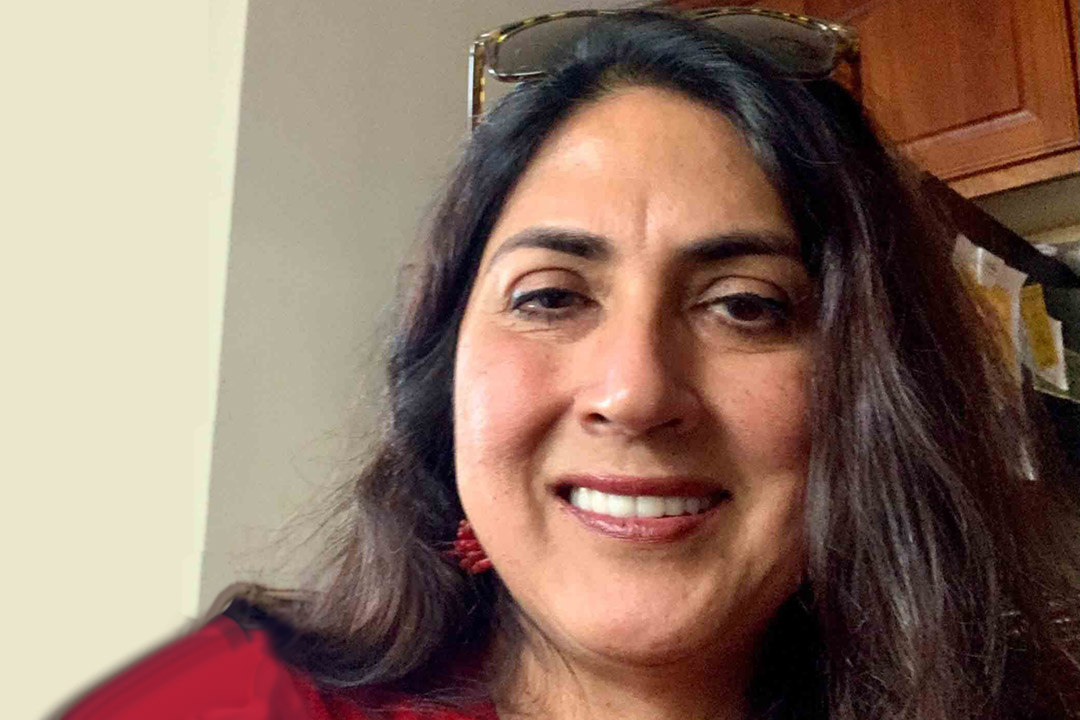
26 Nov Alumni Spotlight – Yasmin Padamsee Forbes ’87
Yasmin Padamsee Forbes, alumni from the class of 1987, shares her wonderful stories of travelling and change among the world with us. Having experience in sustainable tourism, human rights, and global development, Yasmin has developed a respectable career in serving people through representation and aid. She continues to create a force for change as she continues her journey while still remaining true to her roots and experiences. The need to make a difference surrounds Yasmin’s efforts to bring about a better world while channeling her idea of seeing people’s needs as paramount to achieve this.

You have a distinguished career in global development, sustainable tourism, and management. How did you end up choosing this vocation?
As you know, growing up on the foothills of the Himalayas and at Woodstock, I took the forests, the birds, and the insects for granted. I just thought that they would always remain. Later, travelling across India and other countries I realized that we really live on a fragile planet and that we need to make a conscious decision to try and protect it. So, I studied Environment and Development at Bard College and when I graduated, I wanted to go somewhere where I could save the rainforest, and I happened to get a position in Papua New Guinea. I didn’t know anything about it, but I just knew it had a lot of the rainforest and that’s where I wanted to be. Once I went there, I realized that you can’t only look at saving the rainforest because you have to ensure that the people living in it have the ability to send their children to school, buy medicine and food, and therefore I became very interested in supporting something that was more sustainable which would also help people. Therefore, becoming inclined towards sustainable tourism as it’s a way to help and improve people’s lives as well as protecting the environment. It’s always been my passion and hobby and it’s something that I always continue working on in my free time as well.
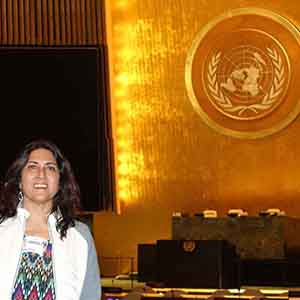
Having worked with the United Nations in Myanmar, what was that like for you?
I had always been interested in going to Myanmar because my mother’s family is from there. They had left as refugees and I was a little bit nervous to go there. Though, when I graduated from the Kennedy School in Cambridge, I saw that there was a job opening with the United Nations in Myanmar. I had been working with the UN in New York so I felt I would have a good shot at it. I went to Myanmar soon after Cyclone Nargis, which happened in 2008, and I went in January 2009. The whole time it was an incredible experience. The first time I went there I was working a lot on humanitarian aid and ensuring that aid was provided to the communities that were impacted by the cyclone. We also flew in small, chartered planes across the country which was very exciting since I’ve never really flown in these small planes before. Being able to go there and see aid being distributed, and realizing how important it is that aid is provided quickly to people who are suffering these natural calamities. Once that work started winding down, I was working in the UN’s Resident Coordinator’s Office which looks at political issues. I was very involved with working in the UN’s office in Myanmar and New York. While I was there, Aung San Suu Kyi, who is a freedom fighter and won a Nobel Peace Prize, was released and that was really incredible because while I was still there she was in prison and when she was released it was crazy on the streets. It seemed like Myanmar had won the World Cup. It was probably even more significant since she had been under house arrest for 20 years. Slowly, things started changing. At first when I had arrived, you could not have any dialogue or discussion about the government. Though, after 5 years, the government became more open where we could discuss these issues. There was this whole air of openness and freedom with all these young people arriving there. In fact, I also met up with several people from Woodstock there and just the whole atmosphere was intoxicating and that’s why it’s just so tragic with what’s happening there right now. With the military coup and now COVID, there are so many people dying there with the lack of oxygen. In Myanmar, having even fewer resources, unofficially at least 15% of the population could have COVID and most families are impacted by it. It’s really just tragic. Currently, I’m in contact with a lot of Burmese and I do fundraising to provide funding to people who are on the ground so that they can buy oxygen and receive healthcare.

Currently, you are the Chair and Commissioner for the Cambridge Human Rights Commission. Can you tell me a little about that?
This is the volunteer job that I have with the Cambridge Human Rights Commission and it looks at human rights issues. However, at my current job I’m the executive director of the Asian American and Pacific Islander Commission and it was a real honor that I was selected to lead it in April. The commission is a permanent body that is dedicated to advocacy on the behalf of Asian American Pacific Islanders in Massachusetts. Our goal is to recognize and highlight their contributions to social, cultural, economic, and political life of the Commonwealth, to identify and address the needs and challenges facing residents of Asian ancestry, and to promote the wellbeing of these dynamic and diverse communities. Basically, studying at Woodstock and living in America I learned that the strength of any community comes from celebrating our diversity and encouraging unique perspectives to flourish. At Woodstock, it made me colorblind and I’m really grateful for that, as I see the individual and not the color of a person’s skin anymore. Therefore, this job is really close to my heart as I’ve worked across Asia and the Pacific and now I can assist communities in Massachusetts from those communities that have been left behind. I can work with Burmese, Cambodian, and Pacific Islanders refugees here. It’s people I’ve worked with in their countries and are in Massachusetts and are suffering. Recently, there has been a shocking rise of race-related incidents against Asian Americans. So, one of the things we also do is hold programs and promote legislation that can protect all minorities. Part of my job is to encourage everyone to participate in civic engagement and to be an ally for communities and face negative stereotypes in the United States and across the world. It’s so important that people like us who really understand and don’t see the color of one’s skin work together to protect these communities.

In an alumni interview with your former university, the Harvard Kennedy School, they mentioned that you firmly believe in the need to connect leaders from multiple cultures so they can work together to create a force for change. What does that “force for change” mean to you?
I really believe in connecting people, and in this case, connecting leaders of multiple cultures and sectors so they can “work together to create a force for change”. By this I mean when you get people together, like we experienced at Woodstock, our differences in culture, religion, and political views don’t really matter. What really matters is that we cut through all this unnecessary noise and forge friendships that are based on this unique experience that we all had and shared. In the same way, when I was living in Myanmar, I could bring together all the alumni from the Kennedy School who were in Myanmar. We were all in this country and were all working together to impact positive change. Having come from the same university though we were from different parts of the world, we had spent that time at the Kennedy School and that unique experience really helped us to work together, share knowledge, and look for ways for how we could impact change in gender equity, health care, and peace-building.
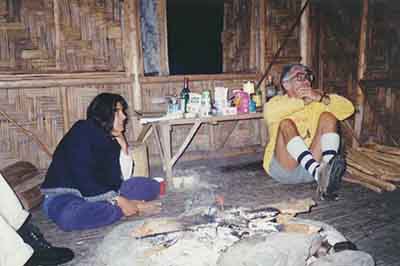
After traveling to places like Papua New Guinea, India, and Lao for management positions, do you have any particular experiences that changed your outlook on what you do?
It reaffirmed to me that the people everywhere are the same and we all seek the same things in life; to be happy, to feel loved, to feel satisfaction in one’s job. Whether it was talking to a villager in Papua New Guinea or talking to a corporate person in India, you just find that people are the same everywhere and that just reaffirmed my attitude about that.
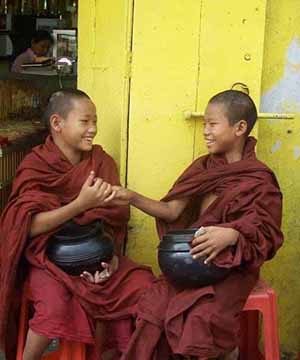
What was life like for you after graduating from Woodstock?
When I graduated from Woodstock, I was used to knowing everyone at Woodstock and became determined to live in a big city and so I convinced my parents to let me study in London. I went to London to study, and after only one year after living there I started craving the atmosphere of Woodstock again. In London, you go to class with people and study with them and then don’t see them again until the next class. There are so many people and everyone is a stranger, and so I really wanted to then transfer to a small college that is in the middle of nowhere where I would know everyone and that’s when I transferred from London to Bard College in upstate New York. It was just a wonderful experience and I’m so glad I did it. The friends that I made at Bard, like Woodstock, I’m still friends with, and being in London I wouldn’t have gotten the same experience.
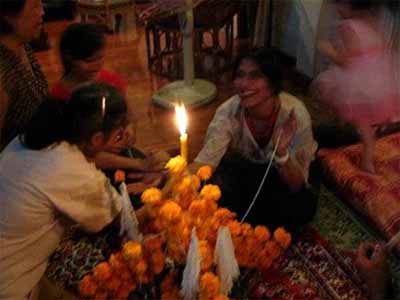
What are some of your favorite moments from Woodstock?
There are just so many, I was very fortunate to be able to be there. One I remember was the huge hill that goes up to school from the dormitories to the classrooms and I have so many memories of climbing up to school in the rain, the heat through the woods, and hearing the monkeys jump onto the tin roofs. Of course, hiking in the Himalayas, long walks through the bazaar, and then also being taught by very dedicated teachers who are always available and having talks with your dorm parents while sipping hot Indian chai. So many moments made it wonderful.
Did you participate in any extracurriculars at Woodstock?
When I was there I learned to play the sitar with a teacher called Mr. Singh and I used to go on hikes whenever I could. I remember this very memorable hike to Himkund which is in the Himalayas, and we stayed at this gurudwara. The next day, we climbed up Himkund and it was the first time I had seen snow because you hike up the mountain and there’s a snowline. We climbed to the top of the mountain and there was this beautiful, crystal clear lake and right next to the lake I saw these footprints of a snow leopard and it was just amazing. I will never forget that hike.
If you could tell current Woodstock students one thing, what would it be?
Most definitely, you should enjoy your time at Woodstock, go on many hikes, and also look around at your classmates because they’re going to be your friends for life!
Interview by: Rhea, Class of 2022






No Comments